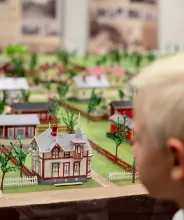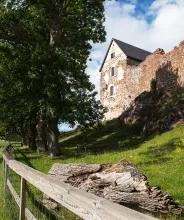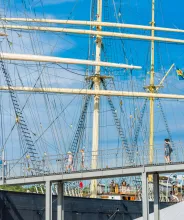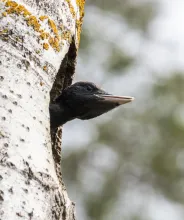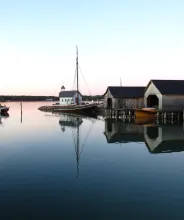Explore the events that formed Åland since people first set foot upon its shores thousands of years ago. At that time, life was centred around hunting and fishing. Today, the islands have just celebrated their first 100 years as an autonomous part of Finland.
A journey through Åland’s history begins at the Cultural History Museum of Åland. The museum’s main exhibition presents the first 7,500 years of the island group, taking you the visitor chronologically through its history, from the first Ålanders to today’s modern, autonomous society.
Along the way, the stubborn islanders have hunted seal, farmed and fished, sailed the seven seas and existed as part of both Sweden and Russia. Today, Åland stands on its own feet as part of Finland.
Ancient times
Yet, we still find many memories from exciting periods all over Åland. If you want to start at the very beginning, head over to Långbergen hill, which is higher than its name suggests. It was here that the land first poked up out of the sea after the Ice Age 10,000 years ago. Up on the hill, you’ll find traces of the old shorelines, which are now 100 metres above sea level. Here is a nature path and one of the oldest Stone Age settlement sites in Åland.
Also of interest is the Kalen hiking trail on Kökar, with its cairn and traces of seal hunting from the Late Bronze Age and Early Iron Age. While there, don’t forget to visit Hamnö, an important harbour during the Middle Ages, where you’ll find the ruins of a Franciscan monastery.
The Middle Ages
Åland adopts christianity early. As early as the end of the 1100s, the first churches were already being built. These were made of wood and replaced by stone churches in the 1200s. The stone churches at both Finström and Jomala are still standing. Today, they are considered two of the most well preserved medieval buildings in Finland. There are a total of 16 churches and several chapels to visit in Åland.
There are several remnants of the middle ages in Kastelholm. in the year 1400 Åland became an administrative province of Sweden, with Kastelholm Castle serving as the administrative centre. The heyday of the castle occurred during the rise of the Vasa dynasty, when King Gustav Vasa and his sons held the throne in Sweden. For example, King Erik XIV was imprisoned in the castle together with his wife Karin Månsdotter.
Behind the castle is the Jan Karlsgården open-air museum, Ålands Skansen, with older buildings from the 1800s and even more stories about olden times.
The Russian time
After belonging to Sweden, Åland and Finland became part of the Russian Empire after the Finnish War of 1808-1809. At the same time, Åland was made the farthest western outpost of the Russian Empire, and construction of the massive fortifications at Bomarsund began in 1830. The fortress was later destroyed by French and English forces during the Crimean War in 1854, but the ruins remain to this day. At the new Visitor Centre, you can experience the rise and fall of Bomarsund with sound and images before heading out to the fortress site itself.

